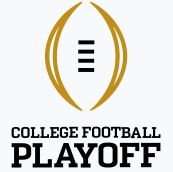Podcast: Play in new window | Download
Subscribe: RSS
Their marriage lasted an incredible 35 years.

Beginning in 1990, the Worldwide Leader in Sports (ESPN) began to carry Major League Baseball League (MLB) games via national cable systems. ESPN proudly carried a Sunday Night Baseball game every week for the duration of their relationship.
On the negative side, ESPN has also been a 35-year partner as pro baseball’s television ratings have declined, too.
ESPN pays $550 million per year for the rights to televise their current MLB package of baseball games. Their latest contract had a primary termination date after the 2028 baseball season.
With just 30 regular season games (mostly on Sunday nights), ESPN does not have rights to baseball’s playoff series or the World Series.

A provision of the current contract between ESPN and MLB allowed for either party to provide notice by March 1, 2025 of their intent to opt out of the current deal after the 2025 baseball season.
This week, ESPN reportedly triggered the contract’s termination at the end of this year’s baseball season.
In addition to ESPN, Major League Baseball retains television contracts with two other national broadcasters which are in effect through the 2028 season.

Fox Sports (including their affiliate FS1) pays an estimated $729 million annually to televise 52 regular season games (usually two games per Saturday), the All Star game, two divisional playoff series, one League Championship series, and the World Series.
The other large national contract with Major League Baseball is with Turner Sports’ TBS channel.

The TBS current deal is priced at $535 million annually through 2028.
Turner’s contract with MLB gives them a weekly game on Tuesday night and Sunday in the regular season plus two divisional playoff series and one League Championship series.
ESPN wanted MLB to reduce the price for the remaining 3 years. Answer: NO!
If you compare what Fox Sports and TBS are paying for their baseball packages, ESPN’s deal does seem a bit overpriced.

Though each group carries a certain amount of regular season games, Fox has the All Star game, half of the playoffs, and the World Series. TBS has two rounds of playoff games.
ESPN had none of the post-season events which traditionally bring the most viewers.
Major League Baseball stated it was unhappy that ESPN had been reducing its on-air coverage of baseball news – including ending the long-running and award-winning “Baseball Tonight” show after the 2016 season.

ESPN is now very heavily invested in its football coverage – especially college football.
Their parent company (Walt Disney Company) also controls the sports division’s programming checkbook, too.
At the moment in early 2025, ESPN owns pricey deals for the rights to televise pro football, basketball, baseball, and hockey.

Don’t forget ESPN’s recent exclusive rights to cover the College Football Playoffs which cost about $1.2 billion annually.
With more home viewers cutting the cord and bailing out on cable television each year, ESPN’s monthly subscriber fees (which can reach more than $10/month as part of your cable bill) are on the decline, too.
From a business perspective, I’m uncertain that ESPN is covering the costs for its baseball package.
Paying $550 million to broadcast just 30 regular season MLB games requires nearly $20 million worth of ad sales – per game – just to break even on the coverage of their (mostly) Sunday night baseball games.

Would you opt to cancel the contract early if you were making money on this deal?
History lesson – How Major League Baseball coverage has overexpanded
Prior to the relatively recent television overexposure of all major league sports, baseball had its “Game of the Week” on Saturday afternoons.
Beginning in 1953 on ABC, the game quickly moved to CBS in 1955.

Those of us old enough might remember former major league pitcher Dizzy Dean and Dodgers’ second baseman Pee Wee Reece calling those games on CBS beginning in 1960.
By 1966, NBC took over Saturday afternoon baseball and kept it there for more than two decades. Over more than twenty years, the voices of Curt Gowdy, Joe Garagiola, Tony Kubek, Vin Skully, and Bob Costas filled those weekly broadcasts into the late 1980’s.
The current group of ESPN, Fox Sports, and Turner’s TBS gained control of Major League Baseball broadcasts beginning around the year 1990.

At the point, baseball coverage literally exploded with the growth of cable television.
Major League Baseball went from one or two nationally televised baseball games per week in the 1980’s to having a national telecast nearly every weeknight plus weekends.
In addition, regional sports networks began to spring up in the markets of many major league franchises. For example, the Houston Astros and Texas Rangers each had their own regional cable outlet where fans could watch nearly every game of the season.
The past 35 years have been the best of times if you loved watching baseball on television nearly every day of the week.
Enter online streaming of Major League Baseball games
Back in 2002, Major League Baseball added yet another option for sports viewers.

The fledgling MLBTV.com was introduced to a relatively small but worldwide audience.
MLBTV.com offers online streaming of all out-of-market games for the entire baseball season. In other words, you can watch most games unless your local team is already being televised by someone else in your market.
For example, if you live in Louisiana but grew up watching the Boston Red Sox, you’re in baseball heaven!
Unfortunately, Houston Astros fans living in the H-town suburbs won’t like MLBTV.com. You’re out of luck. By the way, the local baseball team gets to determine the regional size of their “market” territory.
MLBTV.com is now drawing a lot of viewers worldwide with the increasing number of Japanese stars playing in America.
This year, MLBTV.com (now 23 years old) will offer streaming for all out-of-market baseball games for just $149.99 for the entire season.

That’s less than $1 per game for baseball’s far-too-long 162 game regular season from April through September.
Yes, Major League Baseball coverage has become oversaturated
In addition to MLBTV.com and those three primary television contracts covering Major League Baseball (Fox, TBS, and ESPN), Major League Baseball recently added new relatively smaller deals with online providers Roku and Apple TV.

Starting last year in 2024, Roku began providing “Sunday Leadoff” regular season games for free on the Roku Channel (if you purchase a $49 Roku device and have home Wi-Fi for your internet, that is).
Apple TV’s “Friday Night Baseball” packages generally offer two games on Friday evenings during the regular season.

You must be a paying subscriber to AppleTV+ (about $10 per month).
With so many options to watch baseball, ESPN won’t be missed. The feeling may be mutual.
Major League Baseball stand to lose $550 million per year beginning in 2026 after ESPN pulls the plug and finalizes the divorce from MLB this fall.
MLB may already have one or more parties ready to (pardon my baseball pun) step up to the plate and take a swing at ESPN’s Sunday Night Baseball package beginning in 2026.

As for ESPN, they must fill six months of Sunday night programming beginning next year, too.
ESPN still has the NHL Stanley Cup playoffs (April-June), the women’s and men’s College World Series (June), and its recently expanded coverage of the less expensive but likely much more profitable WNBA basketball games (May – September).
Both ESPN and MLB have enjoyed a nice long run together. After 35 years, the cost of Major League Baseball now outweighs the perceived benefits to ESPN’s parent company (Disney).
Both parties want to end this deteriorating marriage at the end of the upcoming baseball season.

Judge SwampSwami grants this divorce. Next!

